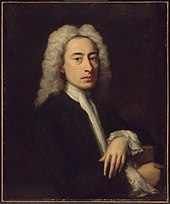Alexander Pope Biography:
Alexander Pope, the celebrated poet and satirist, lived a life etched in verse and controversy. Born into a Catholic family in London on May 21, 1688, Pope navigated religious restrictions and physical limitations to become a towering figure of the English literary landscape. He left an indelible mark on the 18th century, earning accolades for his sharp wit, masterful use of language, and insightful observations on society.
Alexander Pope Nationality & Age:
English, living from May 21, 1688, to May 30, 1744.
Alexander Pope Education and Schooling:
Due to his Catholic faith, Pope faced limited formal education. He received private tutoring and was largely self-taught, devouring literature from a young age. His passion for languages led him to master French, Italian, Latin, and Greek, shaping his literary sensibilities.
Alexander Pope Relationship and Personal Life:
Pope never married and maintained a complex web of friendships and patrons. He fostered close relationships with women like Martha Blount and Lady Mary Wortley Montagu, often reflected in his poems. While some scholars suggest romantic inclinations, his personal life remains shrouded in speculation.
Alexander Pope Career Beginnings:
Pope’s literary journey began early. By 12, he wrote his first poem, and by 16, he published his “Pastorals,” gaining him recognition as a promising young poet. His “Essay on Criticism” (1711) cemented his reputation as a critical voice, and “The Rape of the Lock” (1712) solidified his mastery of satire and mock-epic poetry.
Alexander Pope Net Worth in 2024:
Calculating an accurate net worth for someone from the 18th century is challenging. However, considering his successful career, patronage, and property ownership, historians estimate Pope’s wealth to be equivalent to several million dollars in today’s terms.
Alexander Pope Career and Contributions:
Pope’s career thrived on versatility. He penned satirical masterpieces like “The Dunciad” (1728), philosophical verses like “An Essay on Man” (1733), and translated Homer’s epic poems, “Iliad” and “Odyssey,” introducing them to a wider audience. His contributions expanded beyond poetry, including collaborations on plays and editing works by other authors.
Alexander Pope Achievements and Awards:
Pope’s achievements transcended individual recognition. He became a cultural icon, influencing literary trends and shaping artistic tastes in his era. His innovative use of the heroic couplet and witty epigrams remain unmatched. While there were no formal awards systems during his time, his lasting impact and critical acclaim speak volumes of his achievement.
Alexander Pope Social Media Accounts:
As someone pre-dating the internet, Alexander Pope naturally doesn’t have any social media accounts. However, his legacy lives on through online platforms dedicated to his works and discussions, allowing readers to connect with his poetry and engage with his enduring themes.
Alexander Pope Conclusion and Legacy:
Alexander Pope lived a life shaped by wit, observation, and the power of language. He tackled philosophical themes, social satire, and personal introspection with equal brilliance, leaving a legacy that continues to resonate today. His mastery of form, innovative style, and sharp insights solidified his place as one of the greatest English poets, influencing generations of writers and readers alike. Despite the limitations of his time, Pope’s work transcended historical barriers, ensuring his literary legacy endures with timeless relevance.



